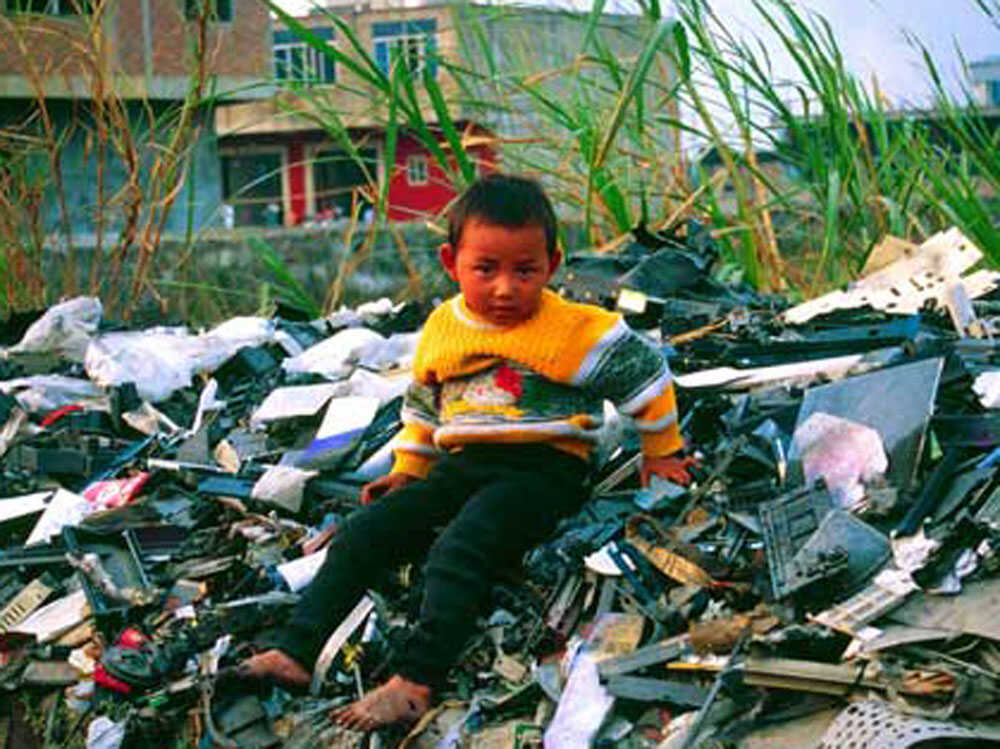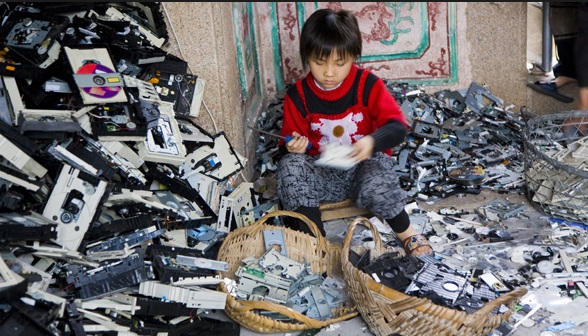Used and broken electronics such as computers, cellphones, dvd players, washers and dryers still hold intrinsic value because if you were to peer inside these things you’d notice a lot of wire and circuitry. There is a surprisingly substantial amount of copper, silver and gold waiting for “the recycling”.
Consumerism- the acquisition of goods, is largely based today on electronic devices- large screen televisions or smartphones for example. Many of us feel the need to upgrade regularly: bigger screens for our living rooms and faster and more powerful phones. But in broad terms, our discarded electronic goods contain about the same amount of silver, copper, gold and platinum as the new items we are replacing them with.
How much value are we talking about?
It is difficult to determine an exact value of gold and other precious materials in an average cellphone. This is because no two models are exactly alike, no two batteries are exactly alike.
Lux Bringer from reddit.com:
All of a sudden these, “bring your old cellphones to us so we can recycle them for you” campaigns are making a lot more sense. Sneaky bastards.
PtrN from reddit.com:PtrN
I’m not sure. I’m seeing that the average cell phone has 1/8 a gram of gold in it from other comments. At the time of this writing, CNN currently has gold going at $1650USD per troy ounce. I crunched the numbers and am seeing that there is about $6.60USD worth of gold in a cellphone. Not too bad, but I don’t know how profitable it will be after you take into account the costs of transportation and the extraction process itself.
Thoust from reddit.com:
There are other materials in a phone they can salvage besides gold
professor_fatass from reddit.com:
According to the article you also get platinum, palladium, and copper. As well as the glass and plastic which may not be worth much but it can still be recycled.
Interesting isn’t it?
Let’s consider the price of copper. Right now in Canada it is just under 4$CDN per pound. If you’re keen and want to sell your own scrap copper you will need a lot of it. An average washing machine motor has about 8$CDN worth of copper wiring up for grabs. http://www.instructables.com/id/how-to-get-tons-of-free-enameled-copper-wire/http://priceofscrapmetal.com/how-to-sell-scrap-copper-wire/
Gold!
There is gold and platinum inside computer circuit boards and hard drives. Most of the gold is an alloy or plated over another metal but at highs predicted to reach near $1,8000USD per ounce- a high volume recycling effort will pay off.
Bleepin’ Animinion from bleepingcomputer.com:
Any, true recycling effort that would be of a profitable nature needs to be EPA approved. Due to the multiple hazardous materials mixed in with the minute amounts of precious metals. As well as the highly toxic removal and heavy metals separations processes. Also as an example it would take an average of one ton of random circuit-board waste to generate one pound of gold. Add to that electronic grade precious metals are not the expensive jewelry grade high dollar metals. Therefore looking at the gold market is not the price you would get. So the profit you would make on the precious metals would be eaten up by the fees and expense of waste disposal of the one ton of hazardous useless waste product left behind after you reclaimed the precious and hazardous heavy metals. This is definitely not a a project to undertake on a small scale in your garage.
This last quote is an important thing to consider.
If you are considering dropping off your scrap electronics and appliances ask the receiving party if they are environmentally approved and a member of an Electronic Stewardship. After all, your discarded electronics will earn a tidy sum of money for a large scale salvager. The least they can do is operate within the law and operate with an environmental conscience. But there is some worry.
The salvagers are looking for an uninformed public- they set up their marketing and advertising in a way that makes no mention of the economic benefits they stand to make.
They seldom if ever offer you a small stipend for your ‘donated scrap’ and perhaps even worse, many pose as “good deed” companies ridding us of our “broken goods” destined for the landfill. The Ontario Electronic Stewardship is a non-profit group that overseas responsible recycling of electronics. This Stewardship works with existing legal frameworks put in place by Waste Diversion Ontario and the 2002 Waste Diversion Act. www.wdo.ca
Social impact in the developing world.
In Southern China over 100,000 people including children spend their lives dismantling discarded electronic devices for scrap metal and an unknown number are doing the same thing in Nigeria. http://www.economist.com/news/international/21570678-growing-mounds-electronic-scrap-can-mean-profits-or-scandals-cadmium-lining
In this file photo from 2001, a migrant child sits atop a pile of unrecyclable computer waste imported to Guiya, China, from other countries.
Basal Action Network
Some players are keeping it real.
Not every electronic device recycling campaign is shady. Increasingly, not-for-profit groups and volunteer fire departments are setting up large recycling bins with signage such as “your donated scrap metal and electronics helps fund X”.
If you are considering dropping off discarded electronics to your local “recycling and scrap drive” ask a few questions. Where are the profits from the salvaged materials going? Is the company operating the drive aware of the Ontario Electronic Stewardship guidelines? What happens to your donated goods at the end of the cycle- are they destined for a landfill or for China?

Polluters should pay their fair share for waste for shifting the cost burden of waste off taxpayers and onto industry. Polluters should pay their fair share. The best way to reduce waste is create incentives for businesses to not produce it in the first place. We must stop allowing industry to pass the cost of waste to taxpayers.
We need an overhaul of the Waste Diversion Act to prioritize waste reduction and reuse over recycling.
The Liberal government has failed to meet Ontario’s waste diversion
targets. Ontario loses 75% of its materials to disposal. Reducing
waste in Ontario is not only a landfill issue, it is also an economic
issue.Diverting waste creates 7 times more jobs
than waste disposal.
The Green Party is pushing the government to fix Ontario’s flawed cost structure that makes dumping garbage less expensive than reusing and recycling. As the cost of energy and resources go up, Ontario must increase efficiency while aggressively reducing waste in all areas of our economy.
Our prosperity and quality of life in the 21st century will depend on using resources efficiently. Reducing waste is good for our economy
and our environment. Mike Schreiner Ontario Green Party Leader
Hello Silo. I have been collecting your paper since the first issue. This is from your article Print is Dead:Long Live Print. Amy P
” In Jennifer Baichwal’s film Manufacturing Landscapes, about Canadian photographer Edward Burtynsky, we learn there are whole towns in China dedicated to breaking down and “smelting” the useable metals out of discarded electronics. When you choose to buy a new BluRay player because it’s cheaper than repairing your old one, this is likely where your old one goes. Apparently you can smell these towns a mile off. ”
You can watch the trailer here:
http://youtu.be/Jv23xwe0BoU